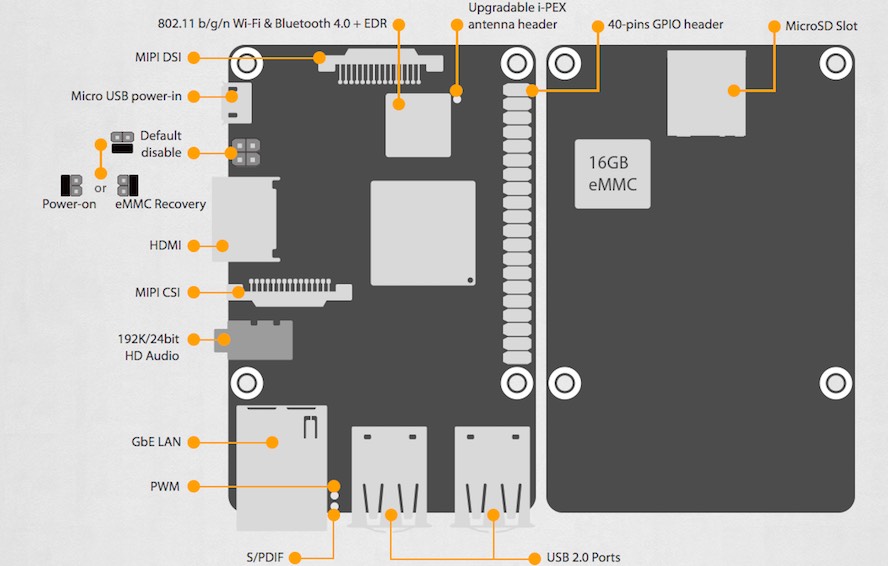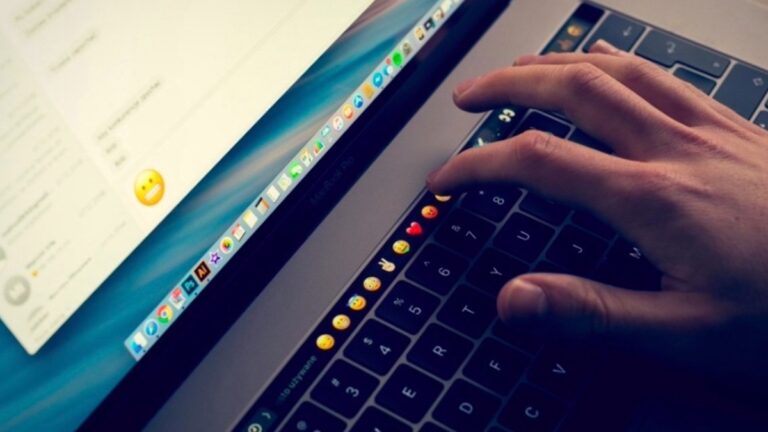ASUS Tinker Board S Is New Raspberry Pi-killer With Linux And Android Support (CES 2018)

Following the last year’s hacker board, ASUS Tinker Board S is the new and improved SBC that brings better durability and stability. Featuring 40 GPIO pins and robust Linux support, Tinker Board S comes with 16GB eMMC onboard storage to improve performance. You also get a microSD card for expanding the storage.
It goes without saying that Tinker Board S will deliver better battery life, performance, and other metrics. The most striking difference between both the versions is the new ARM-based RK3288 SoC, operating at 1.8GHz, opposed to the previous Rockchip RK3288. It also has 4 USB 2.0 ports as compared to two ports in the last release.
It has 2GB Dual-channel LPDDR3 Memory, Bluetooth 4.0 + EDR, wireless 802.11.b.g.n, and Gigabit LAN port. The onboard power-on pin also makes tweaking easier.
Here’s the complete comparison chart:
| Tinker Board S | Tinker Board | |
|---|---|---|
| Processor | Cortex-A17 Quad-core 1.8GHz | |
| Display | 1 x 15-pin MIPI DSI supports up to HD 1 x HDMI up to 4K/30fps *HDMI CEC Hardware Ready |
1 x 15-pin MIPI DSI supports up to HD 1 x HDMI up to 4K/30fps |
| Memory Size | Dual-CH LPDDR3 2GB | |
| Storage | Onboard 16GB eMMC Micro SD(TF) card slot |
Micro SD(TF) card slot |
| Connectivity | 1 x GB LAN 1 x wireless 802.11 b/g/n & BT 4.0 + EDR |
|
| Audio | RTL HD Codec with 1 x 3.5mm audio jack *Supports Plug-in Detection and Auto-Switch |
RTL HD Codec with 1 x 3.5mm audio jack |
| USB | 4 x USB 2.0 ports | |
| Internal Headers | 1 x 40-pin GPIO header w/ enhanced I2S 1 x 2-pin eMMC recovery header 1 x 2-pin Power-on header |
1 x 40-pin GPIO header 1 x 2-pin contact points |
| Power Connector | Micro USB (5V/2~3A) *Supports low voltage input detection |
Micro USB (5V/2~3A) |
| OS Support | Debian 9 / Android 6 | |
| Dimension | 3.37″ x 2.125″ | |
For better user experience, Tinker Board S is HDMI-CEC-ready for complete video entertainment, using which you can control the hacker board and TV with a single remote.
The software running here is a Debian 9-based Linux distro named TinkerOS. It features lightweight LXDE desktop environment. The GUI is optimized for single board computers as well. Moreover, Tinker Board S also supports Android.
The pricing and availability of Tinker Board S are expected to be told in the first half of 2018.







